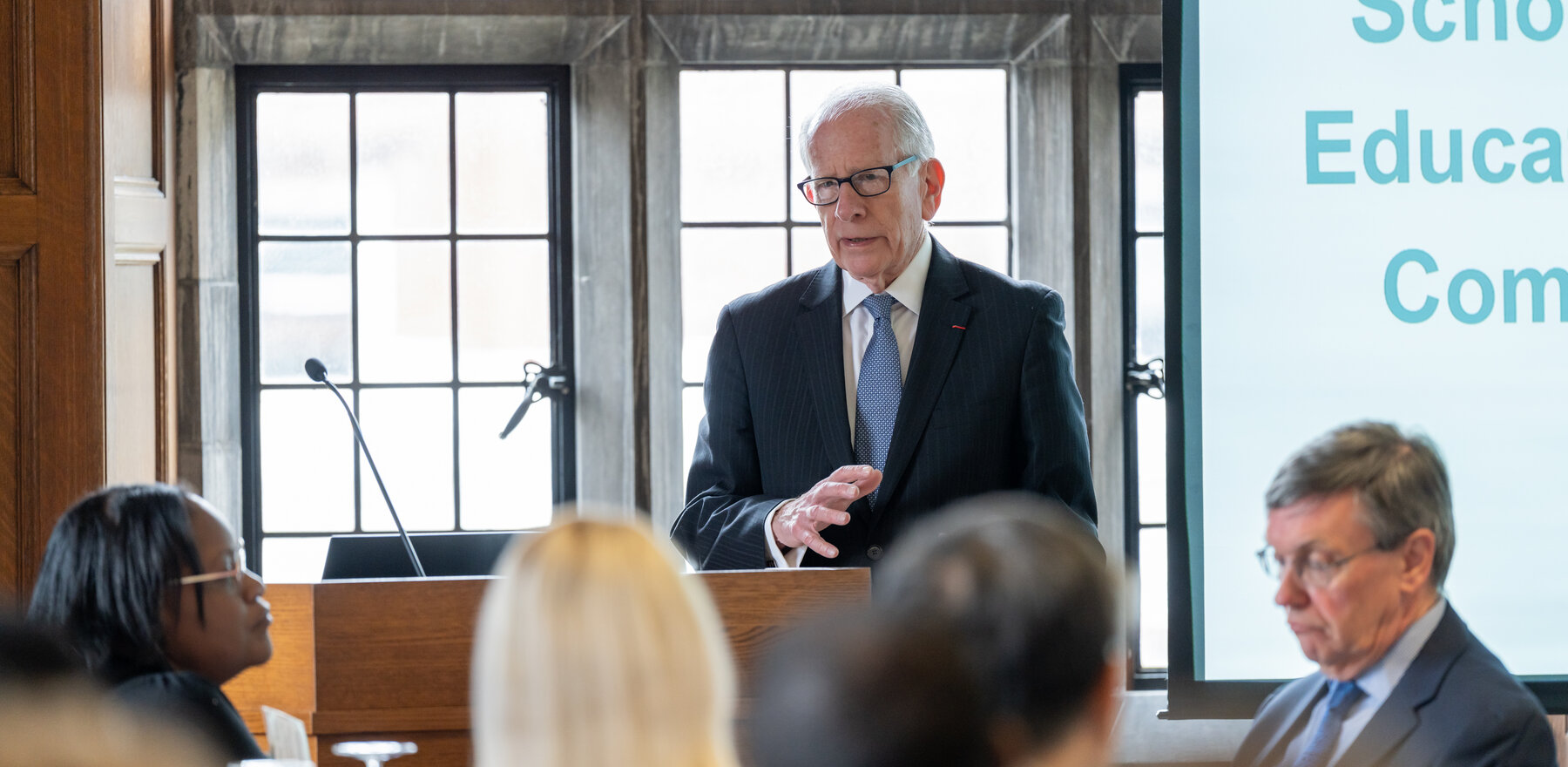While other countries struggle with capacity issues, the United States is poised to reap the academic and economic benefits of rises in international student enrollment
By 2030, the number of worldwide students seeking to study in higher education institutions outside their home countries is expected to grow from 6.4 million in 2023 to more than 10 million, with as many as one-fifth seeking to come to the United States, according to the Institute of International Education (IIE).
While other countries are placing caps on international student enrollments due to capacity issues and housing shortages, the United States has the available capacity due to its large number of colleges and universities, as well as a projected drop in U.S.-born student enrollment numbers expected in upcoming years, according to IIE CEO Allan Goodman.
That puts the United States in a unique position to benefit from the many academic, cultural, and economic advantages that come with greater international student enrollment, Goodman said. International students contributed $40 billion to the U.S. economy in 2022 and more than $2 billion in Pennsylvania alone, supporting 21,956 jobs in the state.
“Unlike the rest of the world, we don't have to build new buildings, we don't have to build more labs, we don't have to hire and train more teachers, because they're all here,” Goodman said during an April 10 symposium at Lehigh University, which explored opportunities to grow international student enrollments in Pennsylvania colleges and universities.
The symposium, entitled “Recruiting International Students and Scholars for Pennsylvania Higher Education: A Strategy for Economic Competitiveness and Innovation,” was organized by Lehigh’s Office of International Affairs, attracting international education experts and representatives from higher education institutions all across the state.
“This event, and the network of people who have gathered here today, is a model for what should happen in the other 49 states,” Goodman said.
Expert Speakers
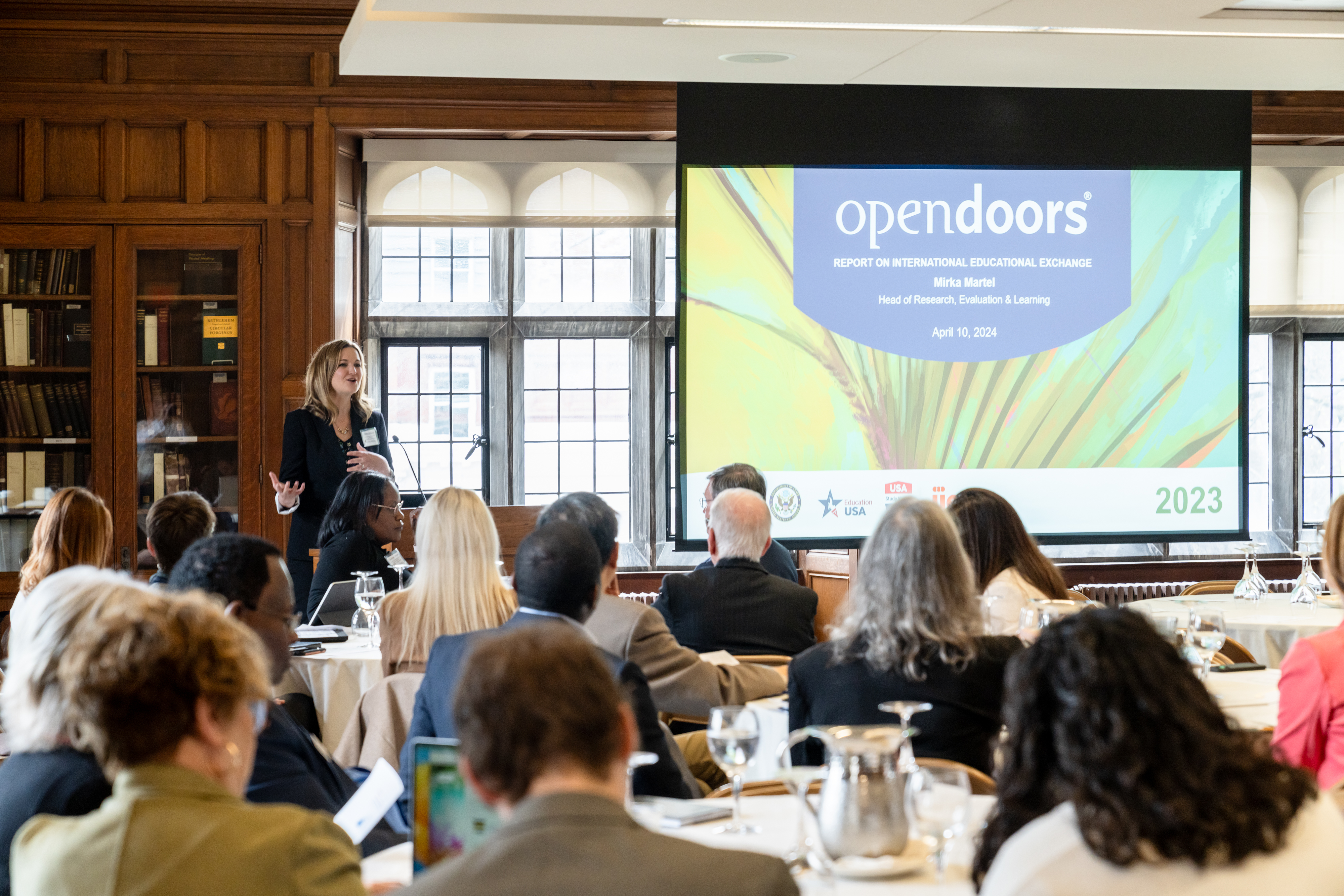
Other speakers at the event included Mirka Martel, Head of Research, Evaluation & Learning at IIE, who discussed the data from the organization's Open Doors report; and Elle Butler, Head of Marketing at IDP Connect, who discussed the results of a national survey about the need for a national policy on international education.
U.S. Rep. Susan Wild also delivered introductory video remarks, while the symposium concluded with a panel discussion with Megan Beste, District Director for Rep. Wild; George Lewis, Senior Assistant to the President & CEO of the Lehigh Valley Economic Development Corporation (LVEDC); and Ali Natale, Senior International Trade Specialist at the U.S. Commercial Service.
Cheryl Matherly, Vice President and Vice Provost for International Affairs at Lehigh, said international student enrollment will help drive cutting-edge research and development, fill job openings in critical STEM fields, advance national security, and bolster the state and U.S. economy by generating new domestic startups and businesses.
“Gov. Josh Shapiro’s state economic development plan prioritizes investments to grow sectors of energy, life sciences, manufacturing, robotics, and technology, all of which are fundamentally connected to having diverse vibrant higher education institutions in the state,” Matherly said.
International Student Growth
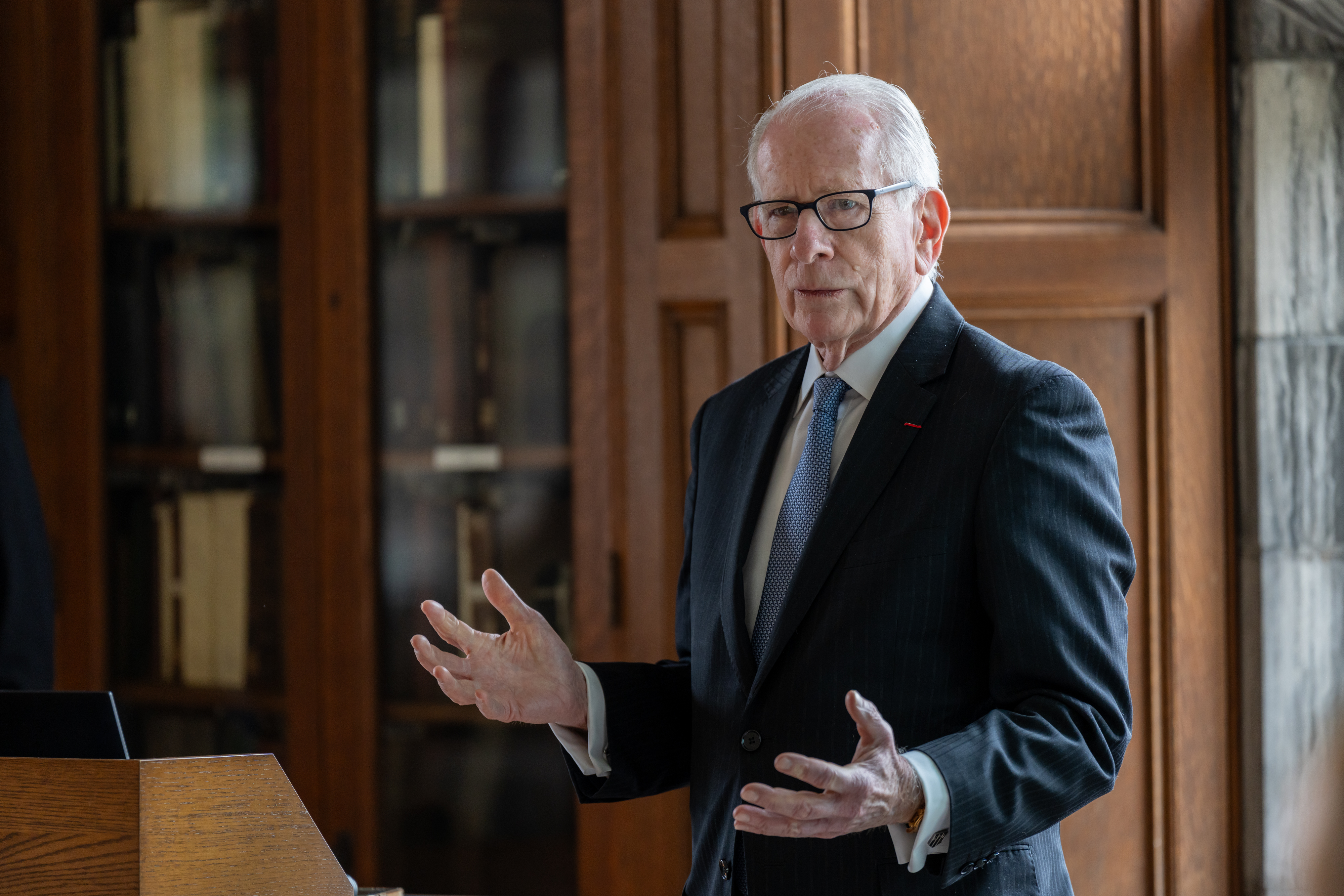
Nearly 1.1 million international students were enrolled in U.S. higher education institutions in 2022-23, a 12% year-over-year increase, which was the largest such jump in the United States in 40 years, Martel said. Pennsylvania saw a similar upward trend, with about 48,600 international students, a 9.5% increase from the previous year.
Future international student growth is expected due to growth in the 18- to 24-year-old population in the global south, particularly places like South Asia, South America, and Africa. While their home countries lack the capacity for them, the U.S. has the capacity because it is projected to see a sharp decline in that 18-to-24 demographic domestically, Goodman said.
The IDP Connect survey presented by Butler underscored the importance and complexities of developing a comprehensive national strategy for international education in the United States. More than 400 respondents participated between November and December 2023, with 77% of participants coming from higher education institutions, Butler said.
Respondents noted the importance of such a strategy in fostering U.S. global competitiveness, innovation and research, enriching cultural diversity, reducing barriers, and increasing access, Butler said. Several challenges in achieving such a policy were identified, including a lack of federal funding and difficulties achieving consensus among stakeholders.
Areas of Consensus
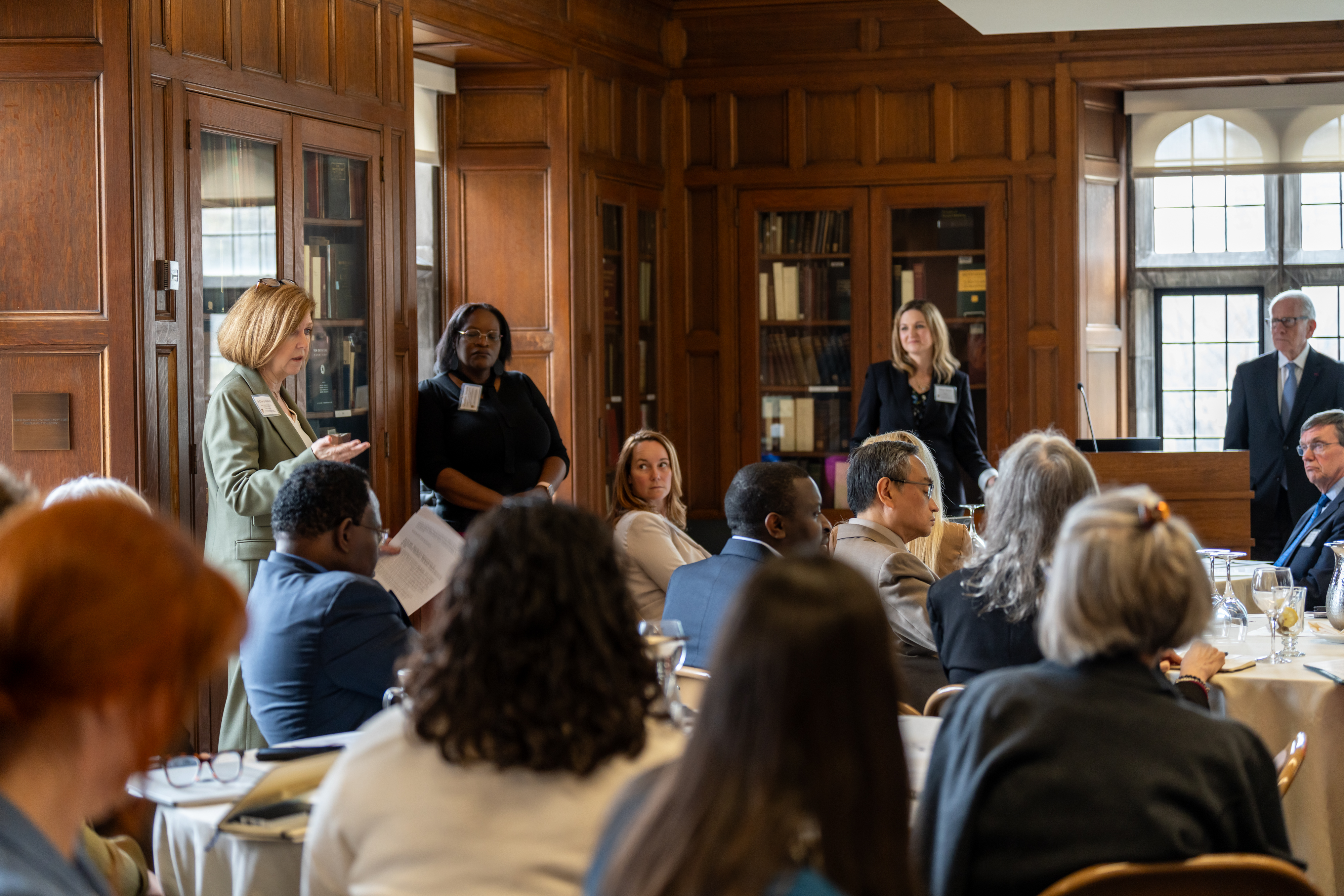
The strongest areas of consensus among survey respondents was the need for modernized work pathways and visa policies, a priority on diversity and access, a desire to grow or maintain the U.S. as a leading destination for international students, and the need for a central organization of strategy implementation, Butler said.
“For Pennsylvania specifically, there is interest in contributing to the American and Pennsylvania economies, to diversifying our campuses, and the creation of a shared market that is meant to help us communicate all the great benefits of having international students,” she said.
Matherly said the discussions generated by the symposium impressed upon her the importance of having a clarity of message regarding the academic and economic benefits of international student enrollment, as well as the importance of sharing best practices and streamlining communication efforts across higher education institutions throughout the state.
“Both of these seem to like ways colleges and universities can work together in a way that will really be in the interests of both the state and our own institutions,” Matherly said. “I’m really glad we were able to come together and have these discussions.”
Panel Discussion
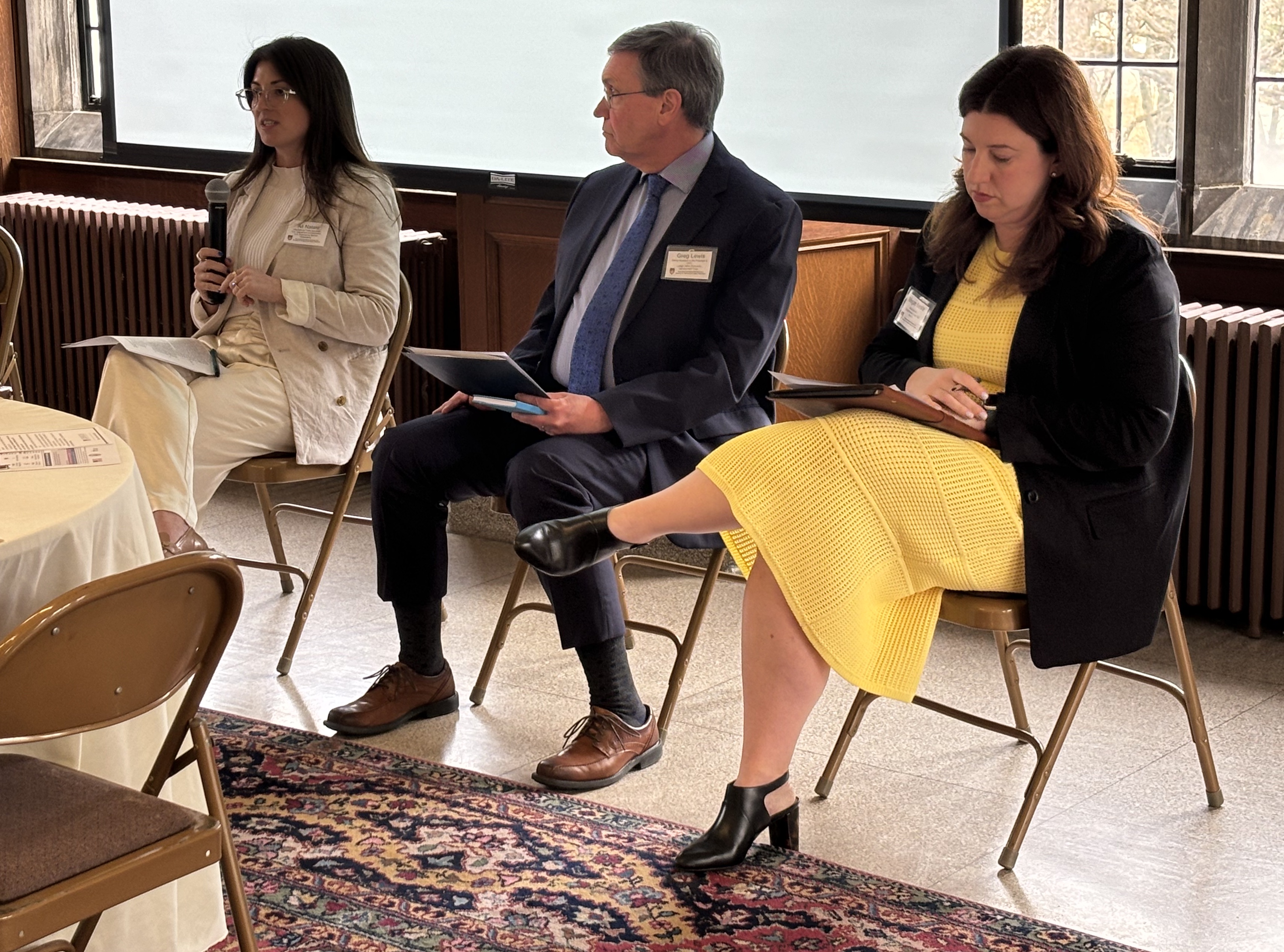
During the panel discussion, Natale said the International Trade Administration’s National Export Strategy now for the first time includes international education as one of its seven national priorities. Education is expected to become a $7 trillion industry by 2025, with myriad economic benefits like travel exports for education purposes, and expenditures by international students who come to the United States for their studies.
The National Export Strategy calls for stakeholders in higher education institutions and consortia to coordinate on leveraging and accessing resources, promote the U.S. as a superior study destination, and communicate the economic importance of international education. Natale said Shapiro’s state economic development plan aligns well with those priorities.
On a local level, Lewis said an important factor for LVEDC in attracting and retaining businesses to the Lehigh Valley is having a skilled regional labor force. Higher education institutions play a crucial role in providing that regional talent pipeline, and recruiting international students is particularly important, since 40% of LVEDC’s business attraction prospects are overseas companies.
Beste noted that Wild serves on the House Education and Workforce Committee, so these topics are of particular importance to her. During her video remarks, Wild said international education substantially contributes to America’s innovation network, with 143 successful startups in 2022 alone having been founded by people who came to the U.S. as international students.
